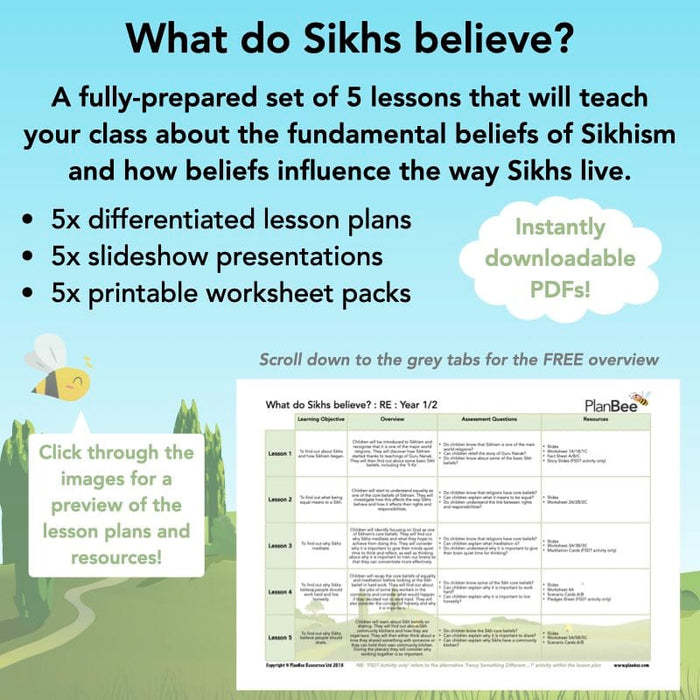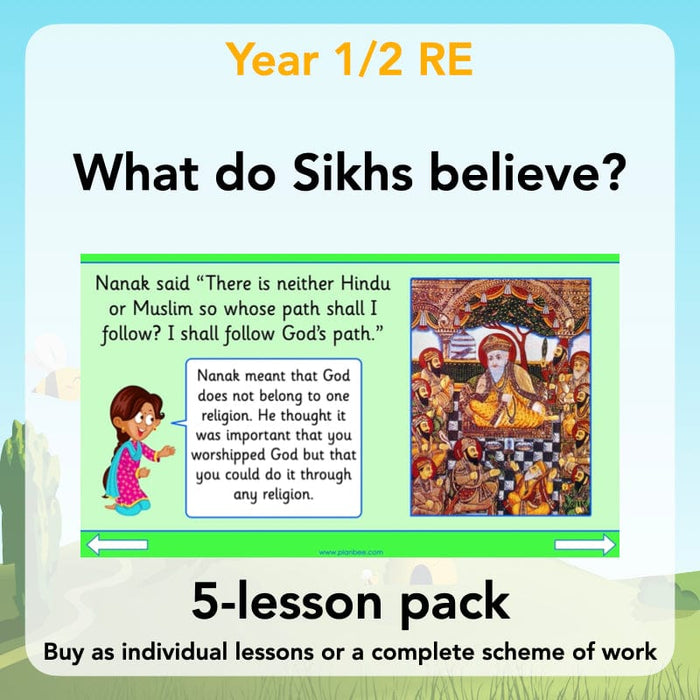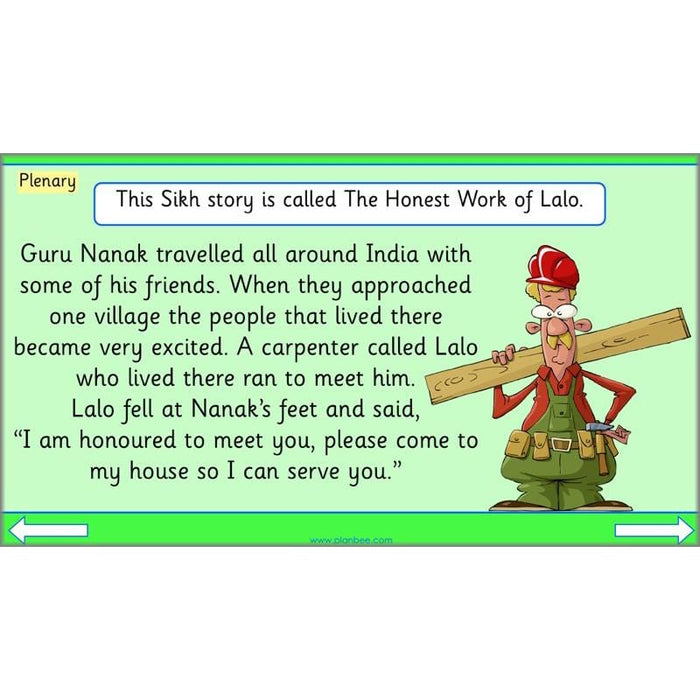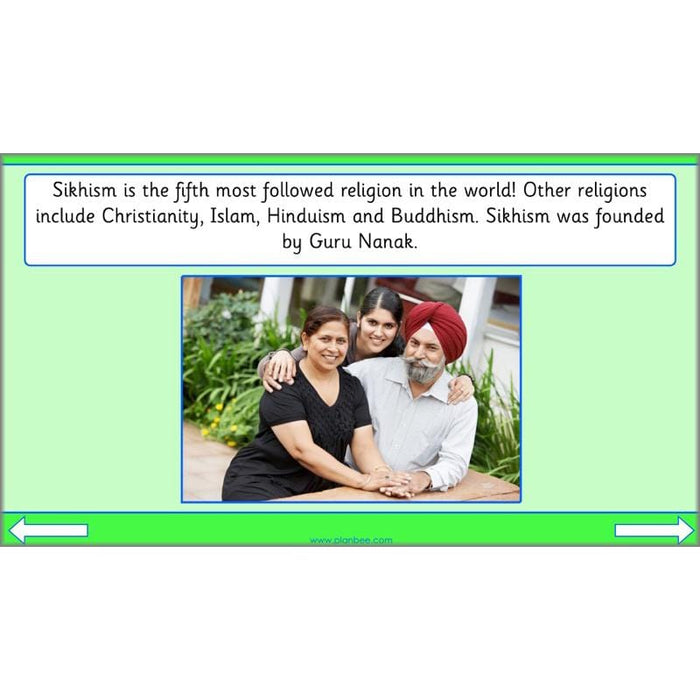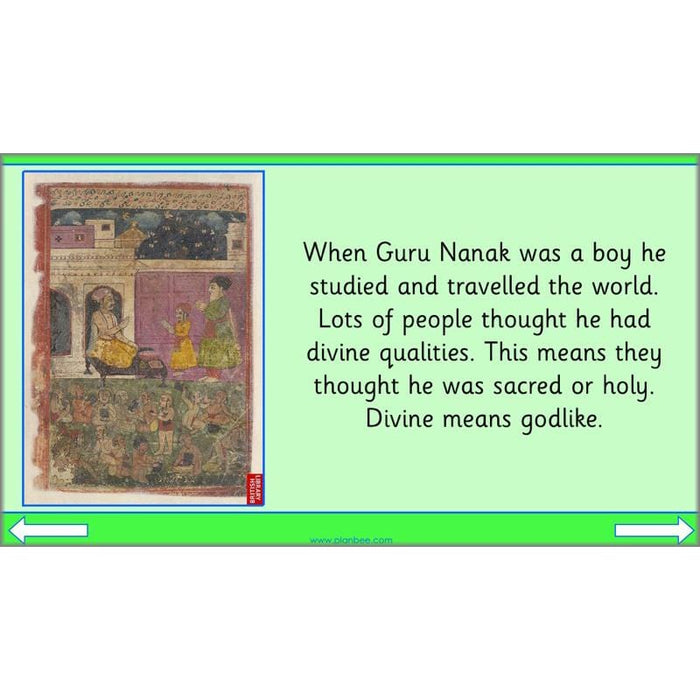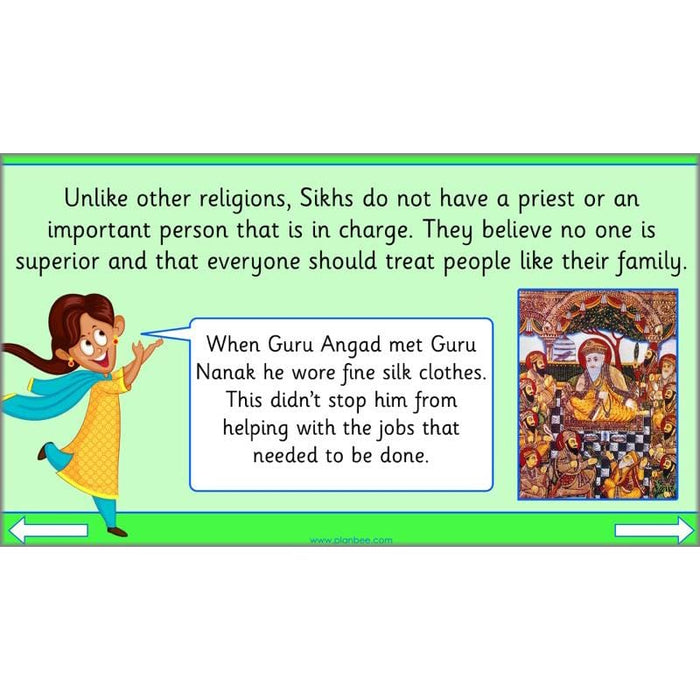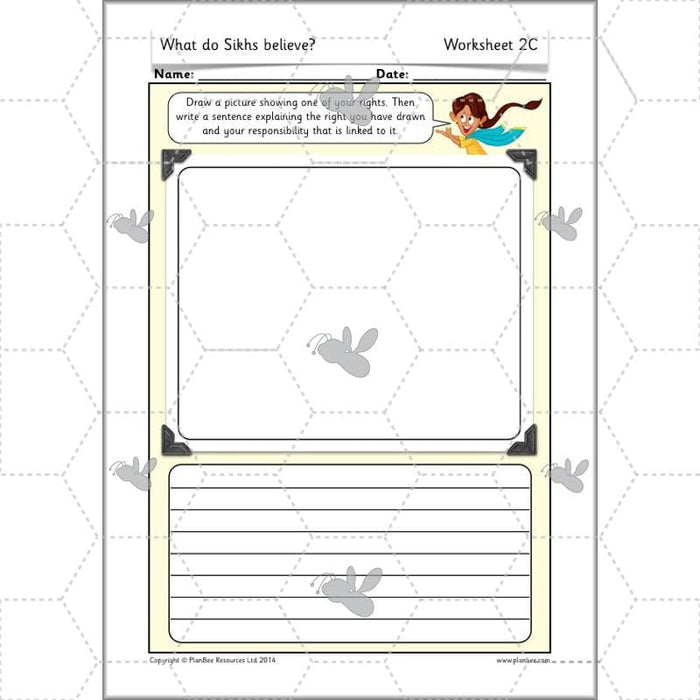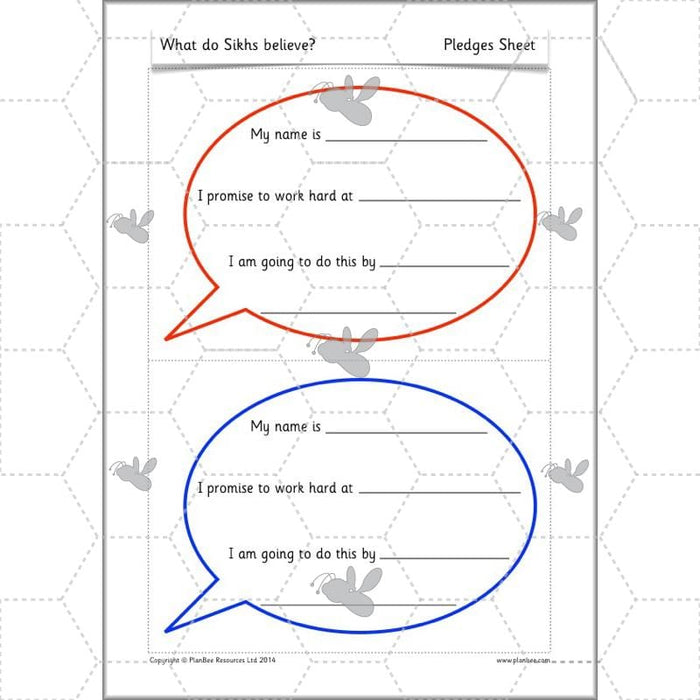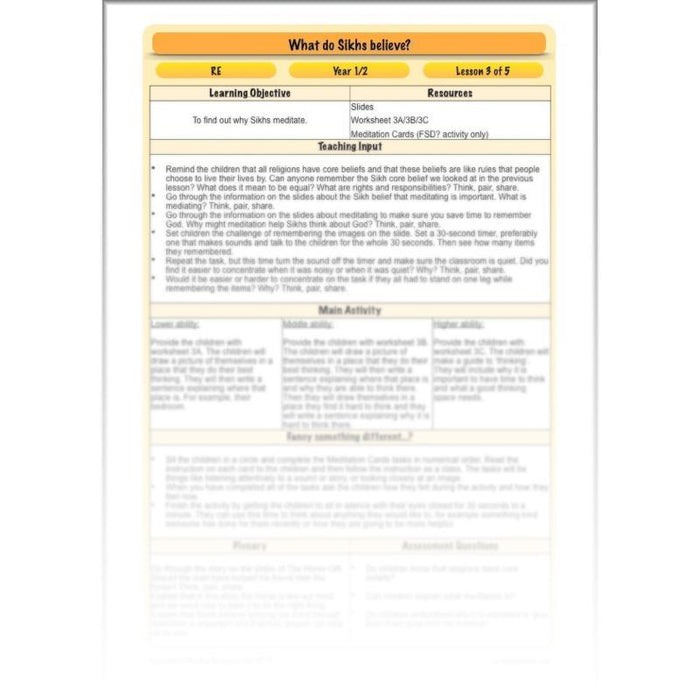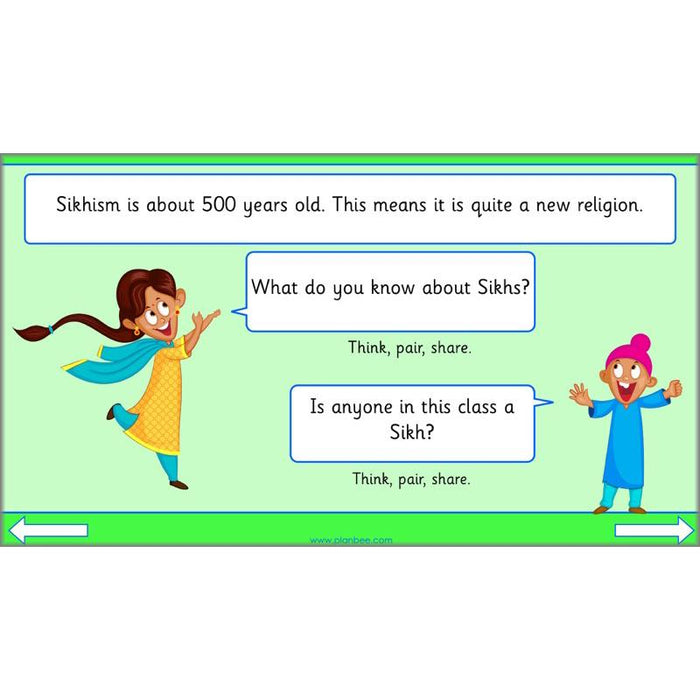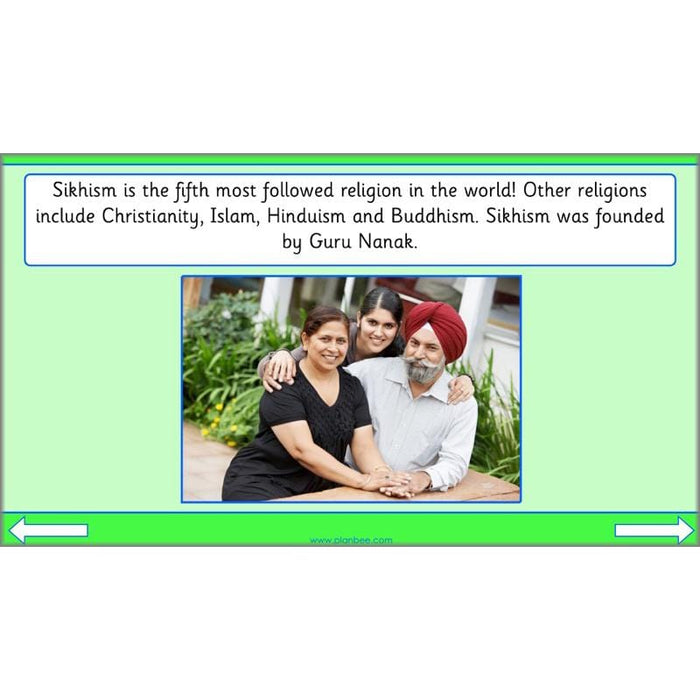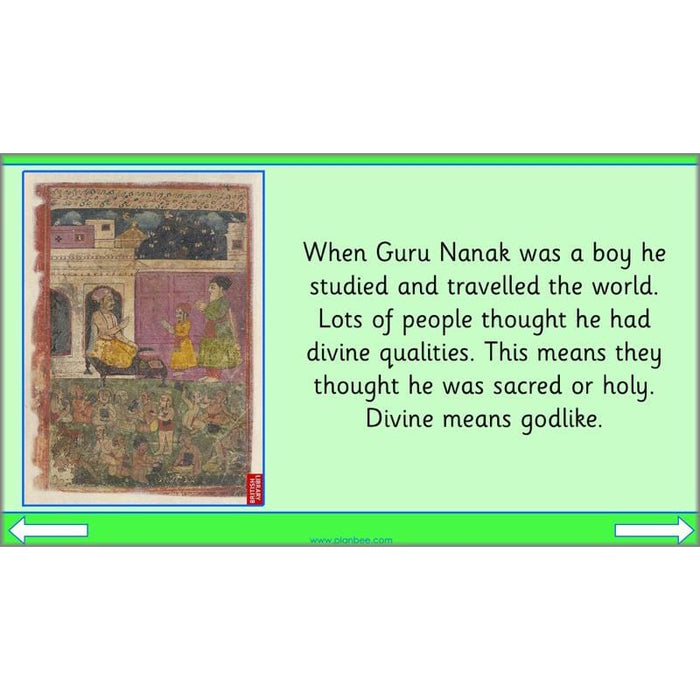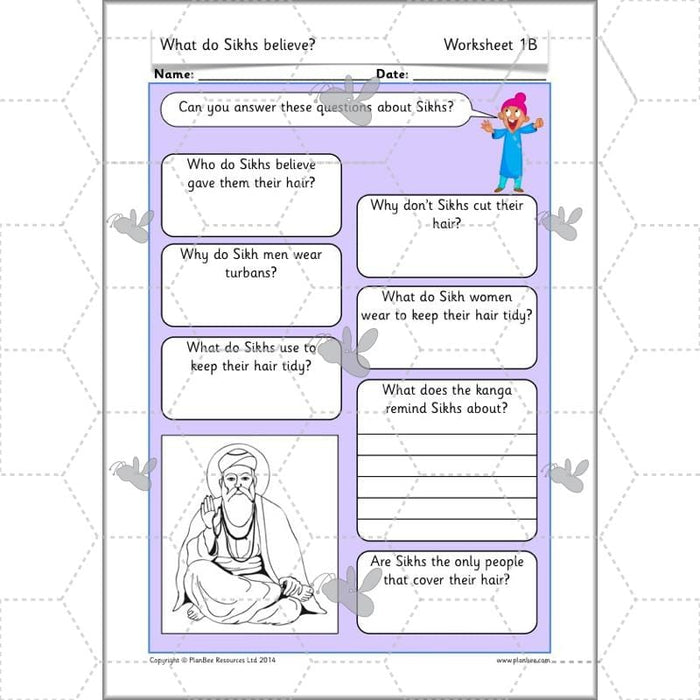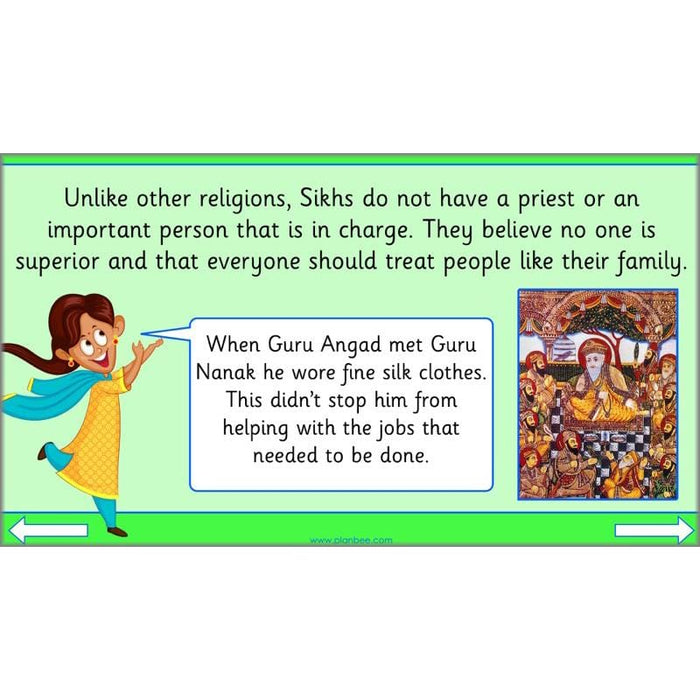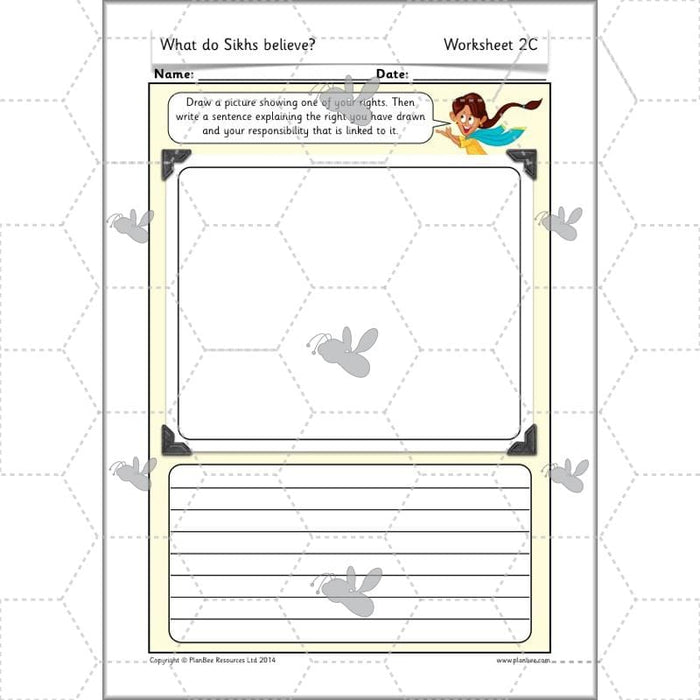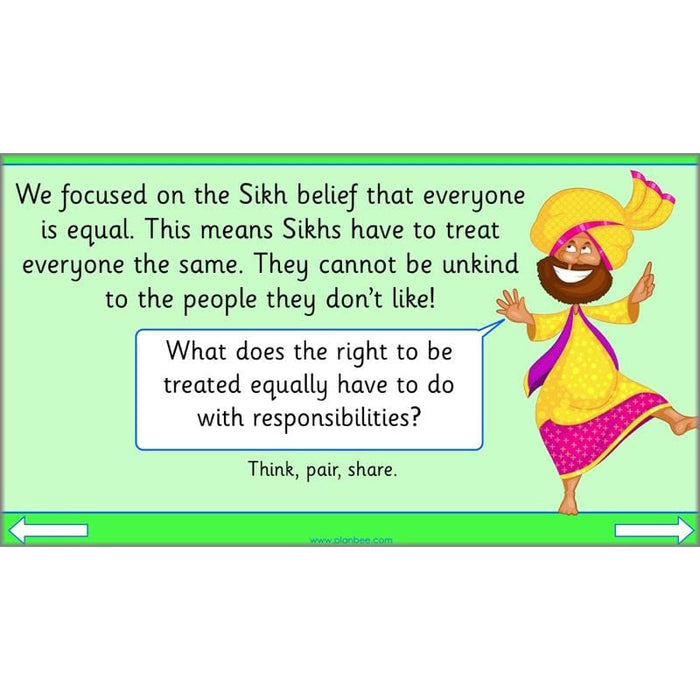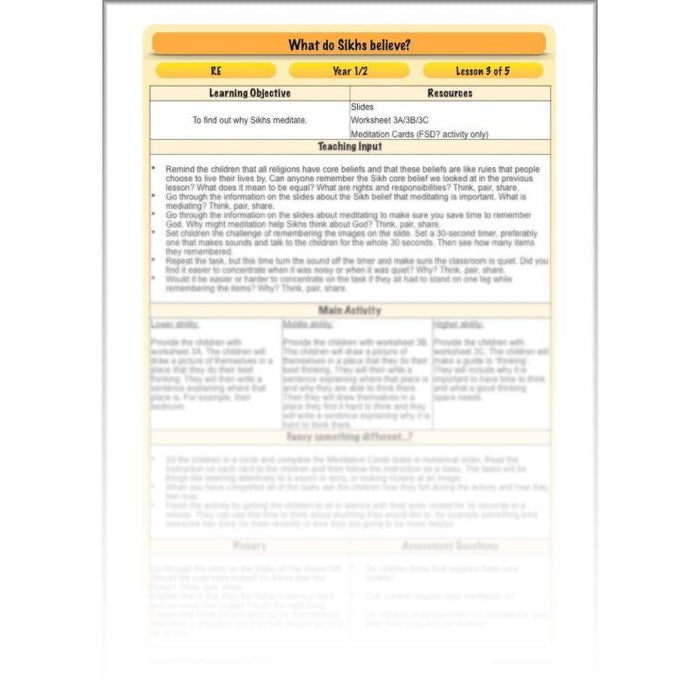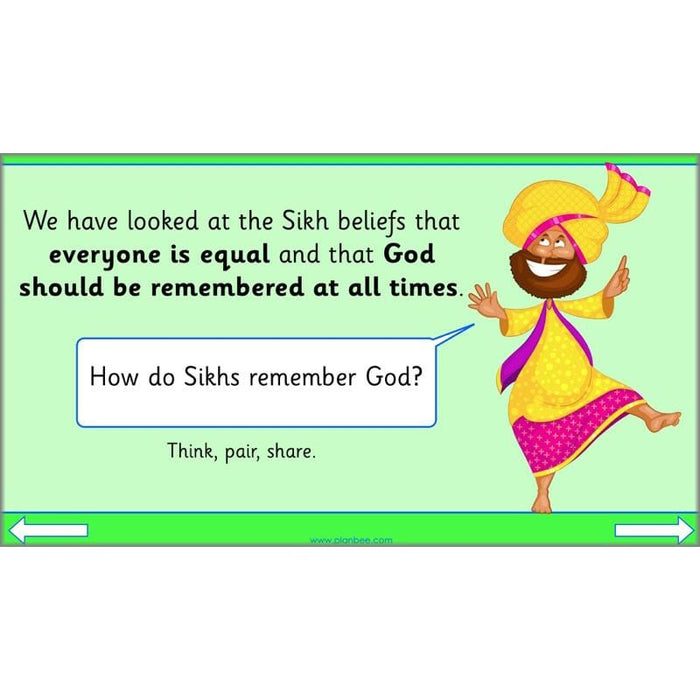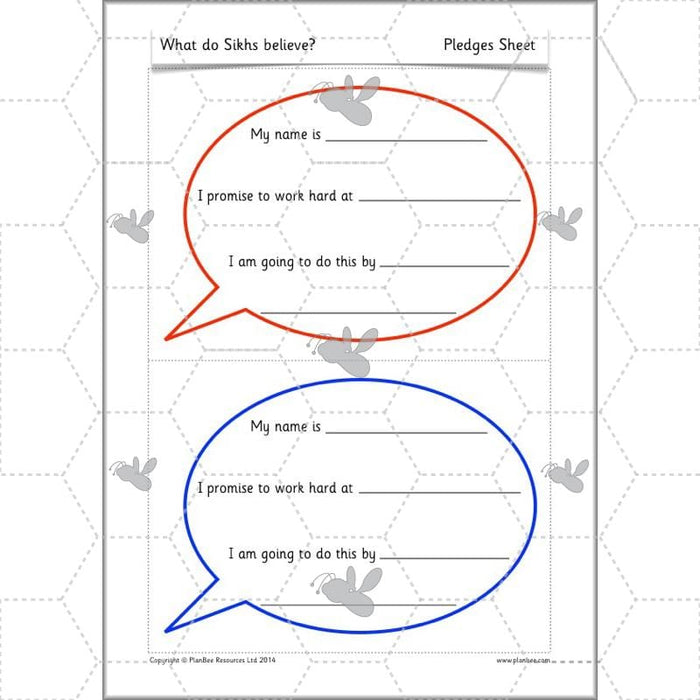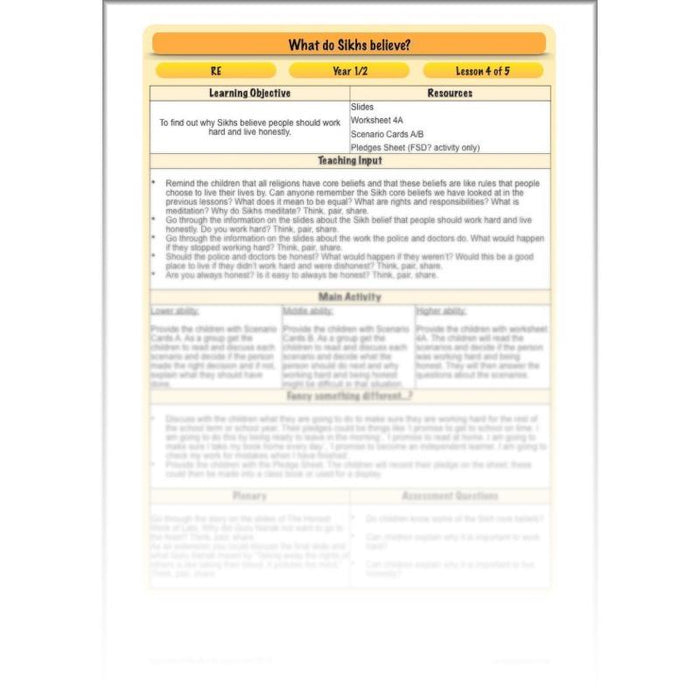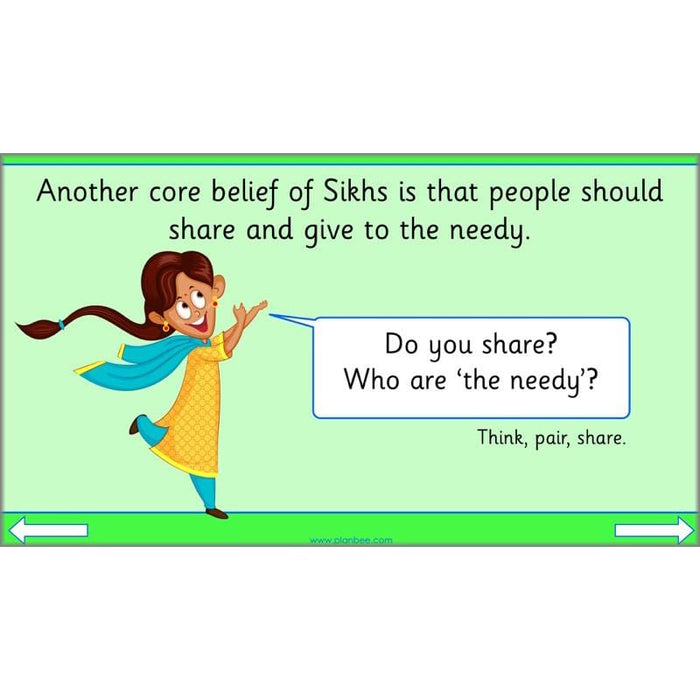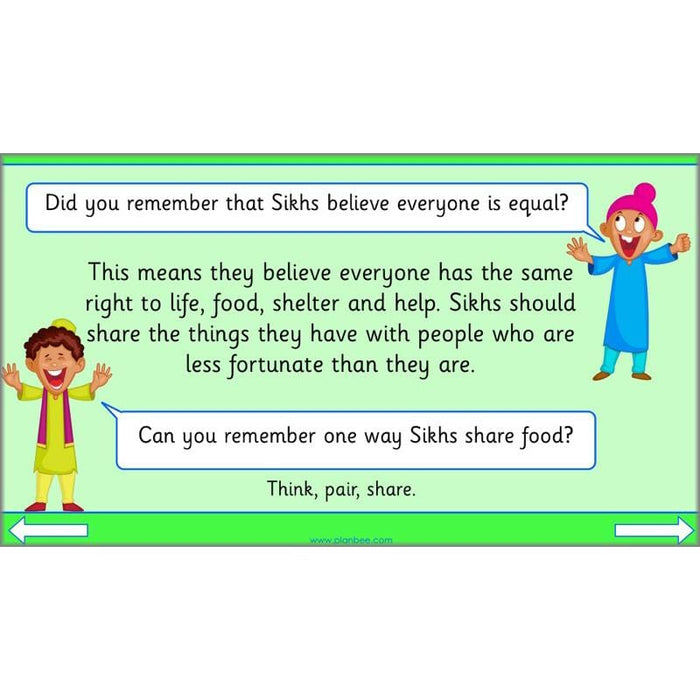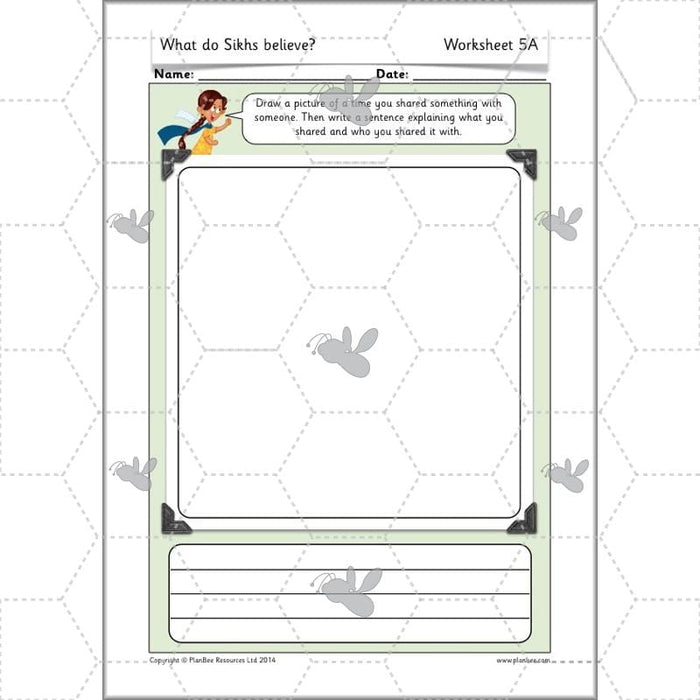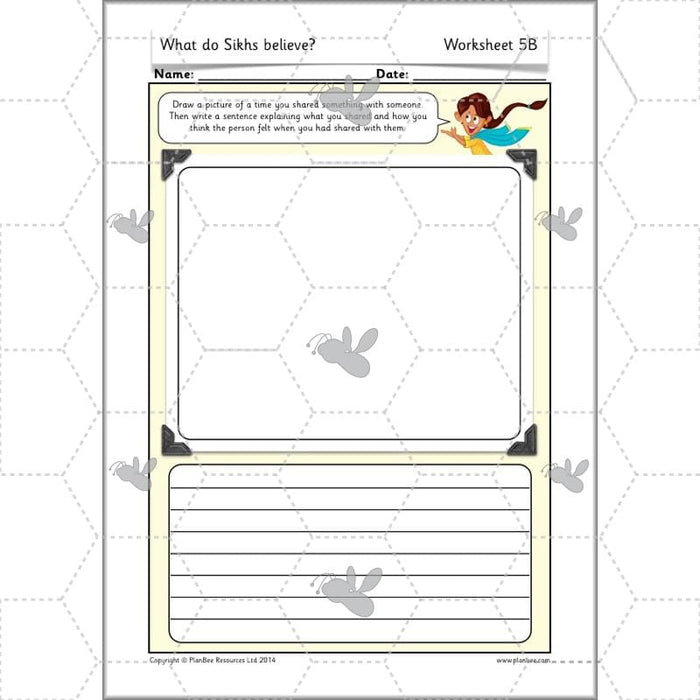What do Sikhs believe?' is a five-lesson RE scheme of work for KS1. It's an ideal introduction to Sikhism for younger learners. Over the course of the five lessons, children will discover key features and beliefs of Sikhism, and find out about meditation, too.
Each of the five Religious Education lesson planning packs includes a detailed lesson plan with a teaching input and a choice of learning activities. A slideshow presentation and a range of printable resources such as Sikhism worksheets, activity cards or fact sheets are also included – practically everything you need to teach your Key Stage 1 pupils all about Sikhism and Sikh beliefs.
Find out about the origins of Sikhism, core Sikh beliefs and the significance of the 5 Ks.
In this lesson, children will find out all about how Sikhism began as you share the story of Guru Nanak, using the included slideshow. They'll also learn about the 5 Ks of Sikhism and what they signify.
This is the first of five lessons in 'What do Sikhs believe?': a complete RE scheme of work for KS1. It includes a detailed lesson plan, a choice of activities, slides and printable resources. It can be taught in sequence as part of this series of lessons, or as a standalone lesson.
What's included:
- Lesson plan
- Slides
- Activity ideas
- Differentiated worksheets
- Differentiated fact sheets
Find out about the core Sikh value of equality. This RE lesson planning pack for KS1 explains how Sikhs believe everyone is equal before God.
In this, the second of five lessons in the 'What do Sikhs Believe?' scheme of work, children will explore how rights and responsibilities are linked and how this applies to their own lives, too. They will look at some of the rights and responsibilities agreed upon for all children in the world by UNICEF, and demonstrate some of what they have learned about Sikhism and equality during either of the two included activities.
What's included:
- Lesson plan
- Slides
- Activity ideas
- Differentiated worksheets
Discover what meditation is, and why it is an important practice for Sikhs.
In this lesson (the third of five in the 'What do Sikhs believe?' RE scheme of work for KS1), children will first think about what they already know about Sikhism. They will then go on to discover what meditation is, and why Sikhs meditate. They'll also experience for themselves how clearing your mind and concentrating on one thing can be helpful as they attempt a memory challenge!
Having thought about the things that make it difficult to think and concentrate, and how meditation can help, they'll read the Sikh story of 'The Horse Gift' – a story about training your mind.
What's included:
- Lesson plan
- Slides
- Activity ideas
- Differentiated worksheets
- Meditation cards
Discover why working hard and living honestly are important virtues for Sikhs.
In this KS1 RE lesson, your class will think about the work police officers and doctors do, and what might happen to us if they decided not to work hard. The children will then look at a variety of scenarios and consider why the people in the situations shown might find it difficult to be honest. Through these activities, they'll gain an understanding of why hard work and honest living are important in Sikhism.
During this lesson's included plenary activity, pupils will hear the Sikh story of 'The Honest Work of Lalo', and discuss why it is important that people have rights.
What's included:
- Lesson plan
- Slides
- Activity ideas
- Differentiated worksheets
- Scenario cards
- Pledges sheet
Discover why sharing, including sharing food, is important in Sikhism and Sikh communities.
In this, the fifth of five lessons in the 'What do Sikhs believe?' RE scheme of work for KS1, children will find out all about Sikh community kitchens and how they are organised. They'll consider why sharing food is an important practice for Sikhs and be challenged to think about a time they shared something with others.
During the plenary, they'll hear the Sikh story of the 'Five-Fingered Family' and discuss why working together is important.
What's included:
- Lesson plan
- Slides
- Activity ideas
- Differentiated worksheets
- Scenario cards
<<
-
free overview (medium-term plan)
...
-
free assessment grid
...
>>
Download a free overview to support your teaching of this scheme of work.
Download a free, editable assessment grid to support your teaching of this scheme of work.
